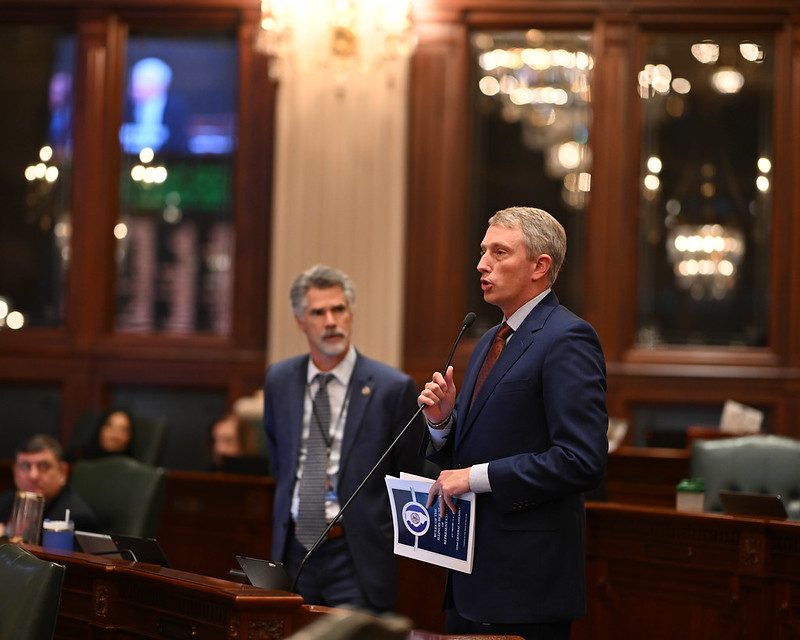SPRINGFIELD, IL – State Representative Patrick Windhorst led debate during the first full day of the 104th General Assembly as the Illinois House considered a new set of House Rules that will govern the operations of the House for the next two years. Windhorst and all other fellow Republicans voted in opposition to HR 15 and offered ideas for Rules that would expand transparency for the public, protect taxpayers, and extend protections for members of the General Assembly to ensure fair representation.
“I was disappointed that we rushed to debate the House Rules so soon into this Session. Normally, members of the House are given time after inauguration to be able to read, reflect, and offer changes to proposed House Rules,” Windhorst said. “Too often, we see the supermajority skirt, break, and suspend their own rules, and that harms the taxpayers and stifles my ability as a Representative to fully represent my constituents.”
Windhorst filed multiple resolutions that he says would give a greater voice of representation to the more than four million Illinoisans who are represented in Springfield by Republican members of the House.
“The Democrats have a strong supermajority, but that doesn’t mean that taxpayers in Republican districts should have their interests slighted. As a legislative body, we can do better to make sure that the interests of all Illinoisans are represented,” Windhorst said.
Windhorst proposed the following resolutions to amend the House Rules that were passed on a partisan roll call on Thursday.
HR 16 – Eliminates loophole that allows a substantive resolution to evade the normal requirement for publication on the agenda of pending items (the daily House calendar)
HR 17 – Requiring a committee hearing and a vote on any bill that has at least 5 co-sponsors from each party.
HR 18 – Provides public disclosure of pre-filing for Senate bill sponsorship.
HR 19 – Creates a minimum review period of 24 hours before final action on appropriation bills.
HR 20 – Utilize conference committees so proposals can retain the same bill numbers throughout GA consideration.
HR 21 – Limiting the number of bills allowed to be on a consent calendar to 25 (down from 80)
HR 22 – Restores requirement for supermajority to close floor debate.
HR 23 – Provides for Member Access to the House Chamber during Clerk’s Office Business Hours.
HR 24 – Requires that Committee and Task Force Audio Recordings be accessible on the GA website within 24 hours.
HR 25 – Requires a record vote when voting to close floor debate (if unanimous consent is denied).
HR 26 – Each member can designate at least one bill per session for a guaranteed committee hearing and vote. It would be designated as a priority bill.
###
